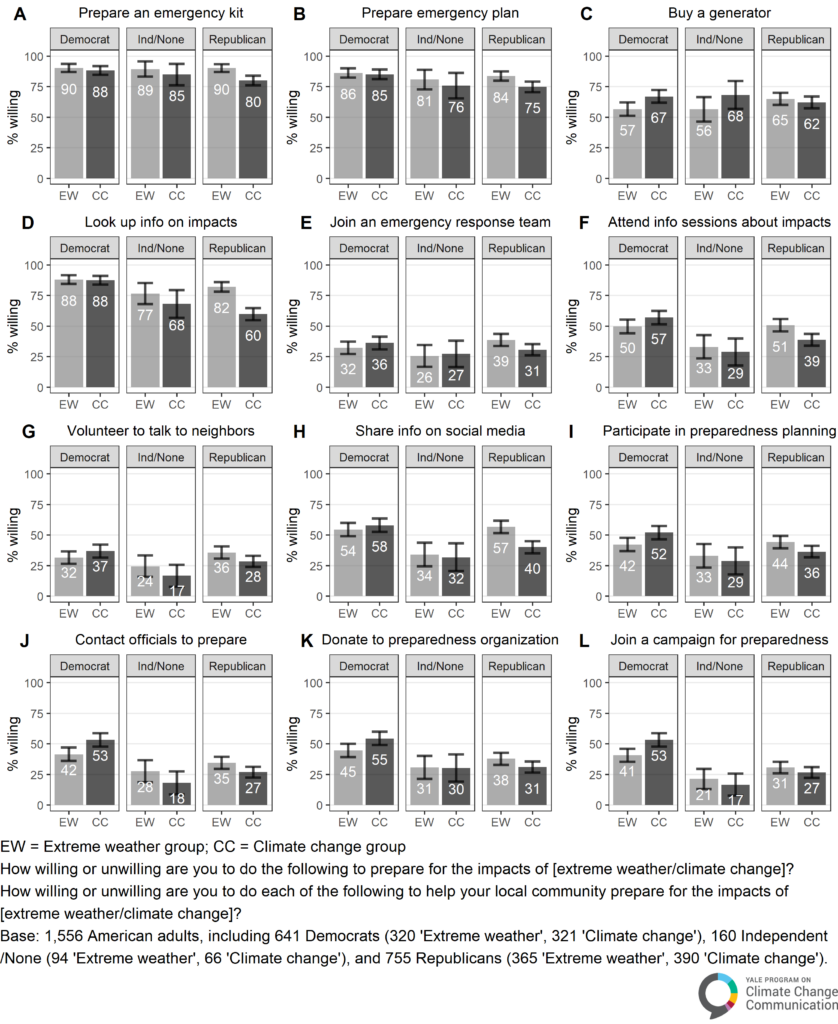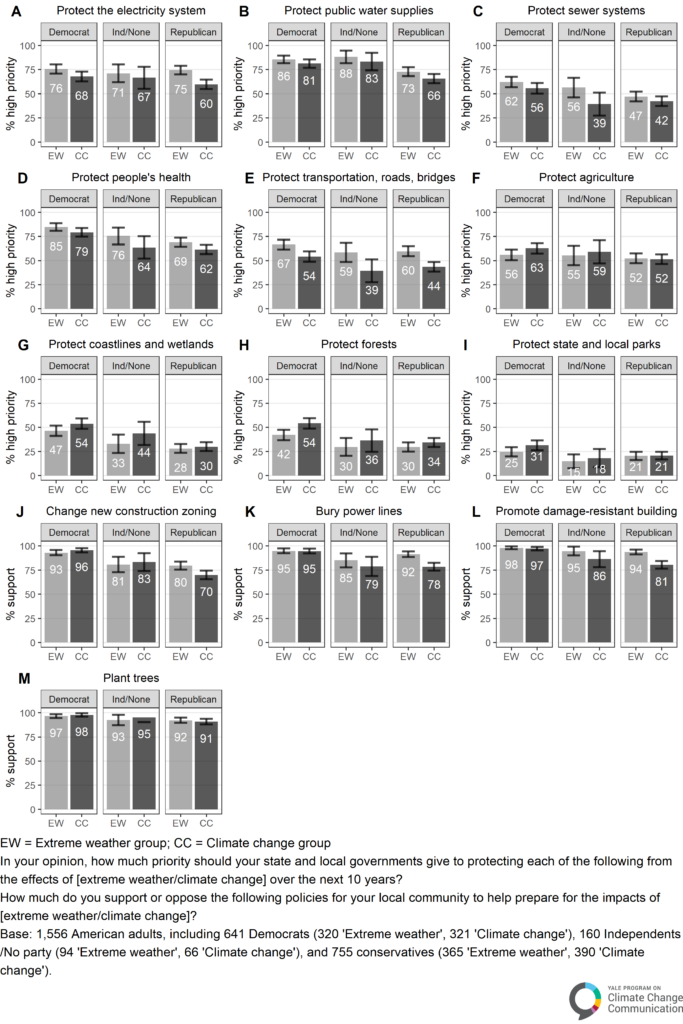Peer-Reviewed Article · Jul 13, 2022
Measuring Americans’ Support for Adapting to “Climate Change” or “Extreme Weather”
By Jennifer Carman, Karine Lacroix, Matthew Goldberg, Seth Rosenthal, Jennifer Marlon, Abel Gustafson, Peter Howe and Anthony Leiserowitz
Filed under: Behaviors & Actions, Messaging and Policy & Politics

We are pleased to announce the publication of a new article, “Measuring Americans’ Support for Adapting to ‘Climate Change’ or ‘Extreme Weather,’” in the journal Environmental Communication. In the fall, we released initial results from an experiment in which we investigated Americans’ willingness to adopt preparedness behaviors and support preparedness policies, depending whether the term ‘climate change’ or ‘extreme weather’ was used to describe them. This publication releases the full findings from that experiment.
The impacts of climate change are becoming ever more apparent. As a result, climate change preparedness is growing in importance. However, in the United States, political conservatives sometimes respond negatively to messages that link an event to climate change, even during an emergency. As a result, organizations such as the American Meteorological Society have recommended avoiding the term “climate change” during emergency events and using terms like “extreme weather” instead. Avoiding the term “climate change,” however, may lead people to focus on the symptoms rather than the causes of climate change, thus supporting immediate actions but ignoring and potentially worsening the underlying problem.
This raises the question: Should communicators use the term “climate change” when talking about preparedness, or should they use “extreme weather”? To answer this question, we conducted an experiment measuring Americans’ (N = 1,558) willingness to take preparedness actions and support preparedness policies based on which term was used to describe them. Respondents were randomly assigned to one of two conditions. The “extreme weather” group (n = 781) was asked about actions to prepare for “extreme weather,” whereas the “climate change” group (n = 777) was asked the same questions, but using the term “climate change.”
We find that respondents’ willingness to prepare depends on the audience, as well as the kinds of preparedness behaviors and policies being described. Notably, we found that the effects of using the term ‘climate change’ or ‘extreme weather’ varied by participants’ political party. Majorities of Americans, in both conditions and in both political parties, are willing to engage in personal protective behaviors (such as preparing an emergency kit), though Republicans are less willing to engage in these behaviors when the term ‘climate change’ is used rather than ‘extreme weather.’ Democrats, in contrast, reported the same willingness to engage in personal protection behaviors, and higher willingness to engage in collective behaviors (such as participating in preparedness planning) when the term ‘climate change’ was used.
Additionally, Republicans had lower support for protecting infrastructure (such as electricity systems), while Democrats had higher support for protecting natural spaces (such as forests), when the term ‘climate change’ was used rather than ‘extreme weather.’ However, majorities in both parties support some local adaptation policies, such as promoting damage-resistant building practices, regardless of the wording used.
Overall, these findings suggest that for an audience of Democrats, using the term ‘climate change’ is not harmful, and, for some behaviors and policies can even be beneficial. For an audience of Republicans, using the term ‘climate change’ is riskier. However, there are differences even within Republican audiences based on the types of behaviors and policies described. When describing preparedness policies, using ‘climate change’ may be relatively harmless, but when describing preparedness behaviors, using ‘extreme weather’ is more likely to be an effective option, until more Republicans perceive climate change as a serious risk.
The peer-reviewed article is available here to those with a subscription to Environmental Communication. If you would like to request a copy, please send an email to climatechange@yale.edu with the subject line: Request Extreme Weather/Climate Change Paper. A publicly available pre-publication version is also available here.

